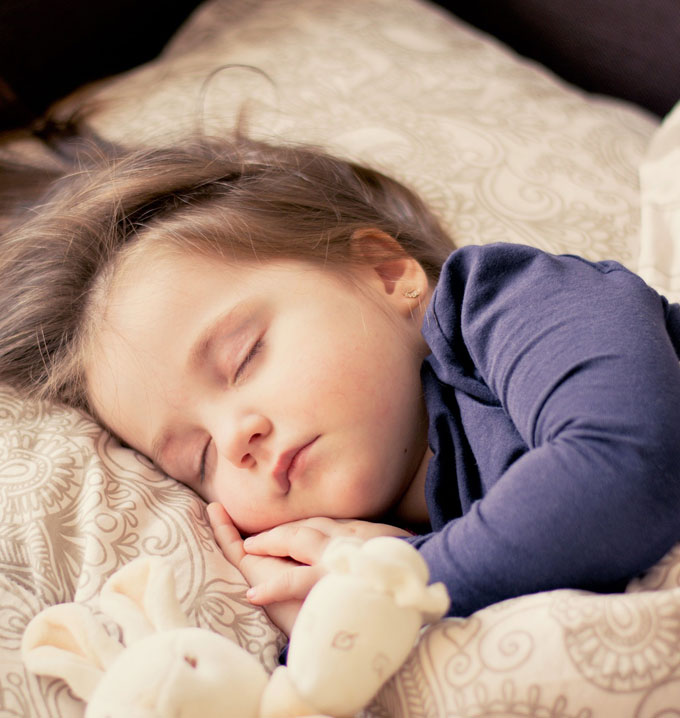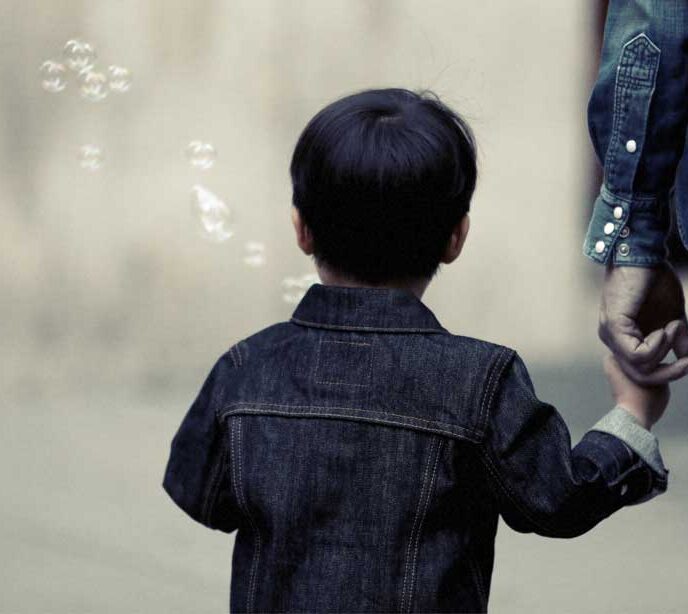Sleep Tips For Children with Autism – Lighthouse Autism Center
There are many children who struggle with sleep issues that prevent them from getting a good night’s rest. We explore the ways that autism can impact a child’s sleep and provide tips to help you address them.

Sleep Tips To Help Autistic Children
There are many children on the autism spectrum who struggle with sleep issues, which in turn, negatively affects other aspects of their lives. We explore how autism may affect your child’s sleep, how common sleep issues are, the consequences it may have for the child, and what helps with these sleeping issues.
How does autism affect children’s sleep?
There are several common sleep issues that children with autism may have to deal with. These include:
- Falling asleep
- Going to bed at a consistent time
- Not getting the right quality of sleep
- Waking up frequently during the night
- Waking up too early
How common are sleep issues for children with autism?
A study from 2018 titled “The Relationship between Sleep Problems, Neurobiological Alterations, Core Symptoms of Autism Spectrum Disorder, and Psychiatric Comorbidities” has found that anywhere between 50% and 80% of autistic children have sleep difficulties. These are incredibly high numbers – and as you may no doubt guess – it can compound the difficulties that children with autism already have to deal with.
What are the consequences of sleep loss for children with autism?
We’ve already touched on the fact that poor sleep can negatively impact your loved one’s life. But what are the consequences of sleep loss or poor sleep in children with autism?
If your autistic child is not getting enough rest, they may end up experiencing increased levels of:
- Aggression
- Depression
- Irritability
They may also struggle with other behavioral issues, as well as lower learning and cognitive performance.
And yes, many of these problems are not unique to autistic children. These issues can impact the lives of autistic adults, as well as neurotypical children and adults, but there’s no doubt that these challenges make things worse for many children on the autism spectrum.
Now that we understand how lack of sleep and autism spectrum disorders can be connected and affect each other, here’s some advice on what you can do to help your children get the rest they need at night.
Tips for helping children rest well
In order for your autistic child to be able to tackle life at their best, they need to get the right amount of rest. Here are nine tips to help them get the right amount and the right quality of sleep.
1. Set an appropriate and regular bedtime
Setting an appropriate bedtime that you stick to isn’t only good advice for a parent with autistic children, but is good advice for everyone. Taking this advice and implementing it will ensure your child’s natural circadian rhythm (the body’s processes that operate on a roughly 24-hour cycle) isn’t disrupted, which makes it easier to get to sleep at night. It also has numerous other health benefits and will ensure the mind is operating at its best.
2. Have a bedtime routine in place
Having a set of activities that you, your child, or both of you partake in can help your autistic child fall asleep. You’ll need to assess and ensure that you implement activities that aren’t stimulating and will help calm your child. Reading them a soothing bedtime story or singing them a relaxing lullaby are some of the possible activities that you can use to help your child drift off to sleep.
A visual or written list of things that your child needs to do may also be beneficial and can help them stick to their routine.
3. Set up the right kind of sleep environment
It’s important that your child has a space that’s dedicated to sleep. This doesn’t necessarily mean that you must forbid all activities or toys in the bedroom. Rather, ensure these activities are kept to a certain part of the room and that they definitely don’t take place in bed. If there are certain things that help your child sleep, such as a stuffed animal, then these sorts of objects can be kept in or near the child’s bed.
It’s also important the bed itself is set up in such a way that it encourages your child to sleep. Remember, autistic children can be extremely sensitive to certain sounds and textures. Ensure any bedding you use doesn’t cause your child any kind of irritation or discomfort either due to the way it feels against them or the sound it makes when rubbing up against a person or other parts of the bed.
The rest of the environment should also be conducive to sleep. This means it should be quiet, at a moderately cool temperature, as well as dark or dimly lit.
4. Ensure they don’t eat or drink too late at night
The reason why it’s not a good idea to eat or drink certain things late is that it disrupts the body’s circadian rhythm. Think of it this way; the body is effectively getting ready to “shut down” for the night when all of a sudden, food arrives! This tells the body that it isn’t time for sleep but time to process the food. It’s only once the body is done processing the food that it can return to a state where it’s ready to go to sleep.
Not only is it a bad idea to eat too close to bedtime, but certain foods and drinks can also really make the situation worse. Things like caffeine-filled sodas or sugary sweets can be incredibly disruptive and should be avoided at all costs.
If your child is thirsty, water is fine, and if they are hungry, a small portion of certain healthy foods, such as nuts or fruits that aren’t too sweet, can be given. Ideally, this should be avoided by ensuring your autistic child eats at least three hours before bedtime.
5. Get a good amount of sunshine during the day, particularly in the morning
Sunlight is another key element that affects the body’s circadian rhythm. This is also why it’s so important to start the day with a good dose of sunlight so that your body knows it’s the morning and adjusts your circadian rhythm accordingly. This realignment of the circadian rhythm will also help the body know when it’s time to go to sleep, making it easier for your autistic child to fall asleep at the same time every day.
6. Manage nap times to ensure your child is tired enough to go to sleep at night
If your autistic child naps too much during the day, they may struggle to go to sleep at the same time every night. Keep naps to 20 minutes or less to ensure your child can keep to their regular sleep schedule.
7. Physical activity could be key to helping your child get to bed at night
The study “Potential of Physical Activity-Based Intervention on Sleep in Children with and without Autism Spectrum Disorder” has found that children with autism are likely to be less physically active than their neurotypical peers and that by ensuring children took part in exercise, parents could possibly increase the quality of their child’s sleep. While more research needs to be done to confirm the findings of this study, it is definitely something you could try with your child to test and see if exercise helps your autistic child sleep better at night.
8. Use sleep aids for autistic children
If you’re wondering what is the best sleep aid for an autistic child, here are some of the devices that you may want to investigate further.
- A weighted blanket: There are studies that show weighted blankets can offer numerous benefits for autistic children, including helping them fall and stay asleep.
- A white noise machine: A white noise machine can help your autistic child get a better night’s sleep by helping block any noises that might otherwise disturb their sleep.
- Blackout curtains: There are many sources of light, including unnatural ones, that can disrupt your autistic child’s sleep. Blackout curtains can help you maintain a consistent environment so that they can sleep well. Eye masks could also work if your child does not experience sensory discomfort while wearing them.
9. Consider speaking to a specialist about medication
While there are many non-pharmaceutical interventions that can help you, you may find yourself still struggling to help your autistic child get to sleep. In these scenarios, it’s important to speak with an expert about pharmaceutical options, whether that’s melatonin supplementation or another prescribed medication.
Unlock your child’s potential with the Midwest’s leading autism therapy center
At Lighthouse Autism Center, we offer a unique approach to autism therapy called Lighthouse Fusion®. This unique approach to autism treatment combines the best aspects of ABA and speech therapy to help your child perform at their best. Learn more about Lighthouse Fusion® ABA therapy and take advantage of our autism resources to discover how it can help your child improve their outcomes.
Together, we can unlock your child’s potential
Related News

04/17/2024
Autism & Disability Benefits | SSI | Lighthouse Autism Center
We take a look at the requirements for the SSI benefits for children with autism and other key information.

04/15/2024
Autism Spectrum Disorder and ADHD
Let’s explore the similarities and differences between Autism Spectrum Disorder and Attention-Deficit/Hyperactivity Disorder as well as other diagnoses that may be comorbid with autism. What Is Autism? Autism, also known as Autism Spectrum Disorder (ASD), is a developmental disorder that affects communication, behavior, and social interaction. Here are some key points about autism: Debunking Myths […]

03/07/2024
Symptoms of Asperger’s Syndrome – Lighthouse Autism Center
In this article, we take a look at Asperger’s syndrome, and describe its most common characteristics, how it differs from other autism disorders and how to treat it.


